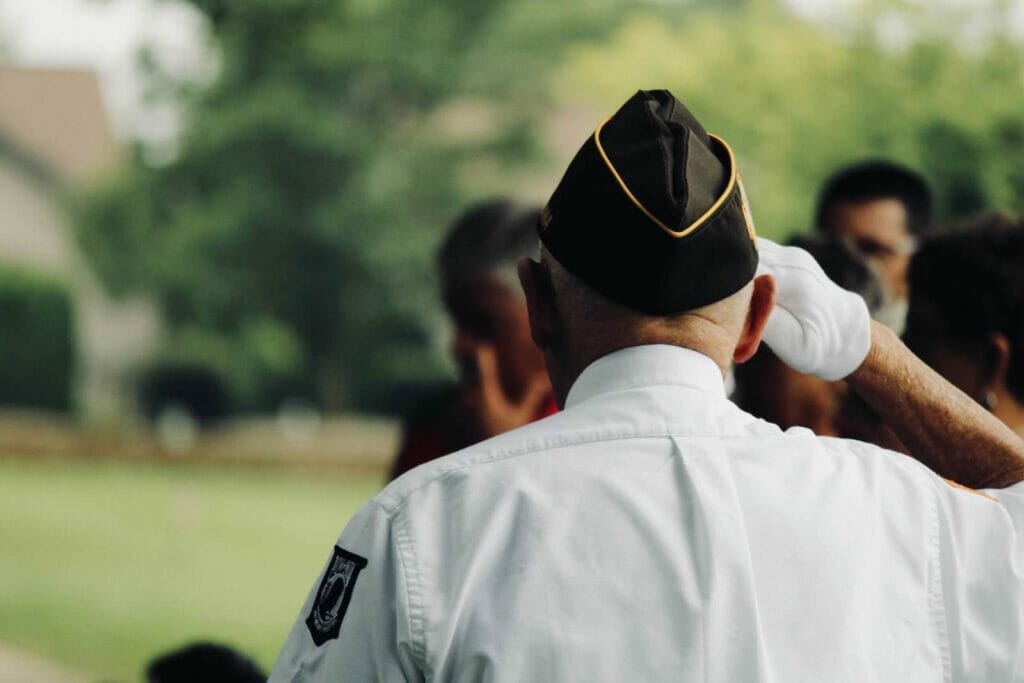[Last updated November 1, 2023]

As people age, they need to consider their living environments to make sure they can meet their care needs. Some seniors may prefer to move to a long-term care senior community while others want to continue living in their homes. Senior Veterans may have access to special U.S. Department of Veterans Affairs (VA) programs that can support their choices for where they want to live. Here, we’ll discuss residential community options and special assistance programs, like VA loans and grants, that can help Veterans repair, maintain, or modify their homes so they are safe for aging in place.
Veteran residential housing options
Some older adults require a level of care that cannot be provided in the home. Veterans needing greater assistance can live in residential settings where they receive a higher level of care. Veterans have multiple options; some residences are home to Veterans only, and others can have residents who are not Veterans. Here are some examples of each:
VA residential communities
VA operates a few types of residential facilities that house and care for Veterans. See the options below for Veterans who want to pursue this type of long-term care setting.
- •VA nursing homes: VA also calls these residences VA Community Living Centers. These nursing homes run by VA focus on housing and caring for their Veteran residents.
- •State Veteran homes: The state in which the residence is located and VA run these residences together. State Veteran homes are residential communities that often provide varying levels of care, from domiciliary (where residents need little help and can live fairly independently) to nursing home-level care to memory care.
Community residential care
Veterans do not need to live in a residential setting that VA runs. VA refers to these options as community residential care, which means that the Veteran lives in their community at a residential facility not run by the VA. Some of these options include:
- •Community nursing homes: These are nursing homes where Veteran and non-Veteran residents can live. Choosing this type of residential setting can be beneficial for Veterans who cannot live in an area where there is a VA nursing home. Many nursing homes exist throughout the U.S. that can meet the needs of their residents, and you can start your search here. These facilities are not run by VA; however, VA contracts with some nursing homes to provide oversight to set standards of quality care for Veterans.
- •Assisted living facilities: Assisted living communities are excellent options for Veterans to live in a safe and communal yet homelike environment. These communities provide rooms and apartments for their residents as well as housekeeping services, planned activities, and other amenities. Most states also require that the facilities provide daily meals. Other added services might include medication management, assistance with activities of daily living, and others. These facilities are not run by VA.
- •Medical foster care: This is a type of residential care where residents, both Veteran and non-Veteran, can live and get nursing home-level care without living in a nursing home with many residents. These facilities are home to a smaller number of residents. Caregivers help them with activities of daily living and other needs that nursing homes typically meet.
- •Adult family homes: These are homes for a few residents, typically fewer than six people. Adult family homes have caregivers who can help residents with activities of daily living, and residents may have their own room or share it with another resident. The residents share common spaces, like dining and living areas.
VA typically doesn’t cover rent in these facilities, but they may be able to offer assistance in covering costs or providing services, such as covering nursing visits. Certain Veterans also have access to benefits, such as Aid and Attendance, that can help offset the costs associated with residential care.
If you are interested in residential housing options, first consider your needs to decide which is best for you. The VA Office of Geriatrics and Extended Care has detailed information about the different types of communities and eligibility requirements. Talk with a VA social worker about which community is best for your needs.
VA home loans and disability housing grants for Veterans aging in place
Many older Veterans wish to remain in their homes as they age or to purchase a new home to live in independently. However, older homes may need repair or maintenance, or the senior may need housing modifications for accessibility and to ensure that their home is safe to live in. There are programs specifically designed to help Veterans buy, repair, or modify their homes so they can safely age in place.
VA home loans
A VA home loan is a government-backed option to help Veterans buy, build, improve, or refinance a house. The VA guarantees a portion of the loan to a private lender. With this guarantee, the lender generally can give more favorable loan terms. The main benefits of VA home loans include the following:
- •No down payment.
- •Lower interest rates.
- •Closing cost limits.
- •Flexible credit score guidelines.
- •No requirement for private mortgage insurance.
To be eligible for a VA loan, Veterans and surviving spouses must meet certain service requirements. To apply for a VA home loan, you must first obtain a Certificate of Eligibility from VA. Once you’ve done so, you apply for a VA loan from the lender of your choice.
The Special Home Adaptation grant
Permanently disabled Veterans with service-connected disabilities may qualify for a Special Home Adaptation (SHA) grant. This grant program offers much-needed financial assistance to help Veterans live independently in their homes. With SHA grant funds, the Veteran can buy or build an adapted home, modify their home to meet their needs, or use the funds toward a mortgage principal in certain circumstances.
To be eligible for this grant, the Veteran or their family member must own the home, and the Veteran must have a qualifying service-related injury.
The Specially Adapted Housing grant
The Specially Adapted Housing (SAH) grant offers assistance to disabled Veterans living independently who want to build, purchase, or modify a home. Veterans can use the funds to purchase or build an adapted home or modify an existing home for accessibility. Modifications can include such things as installing wheelchair ramps and widening doorways for wheelchair access.
To be eligible for this grant, the Veteran must own the home and have a qualifying service-related injury.
The Temporary Residence Adaptation grant
If service-related injuries qualify a Veteran for an SHA or SAH grant but they are living temporarily with a family member in a home the Veteran does not own, they may be able to access the Temporary Residence Adaptation (TRA) grant. If the Veteran is temporarily living with a family member in a house that doesn’t meet their needs, they can utilize the funds from a TRA grant to modify the temporary home for accessibility.
To qualify for a TRA grant, the Veteran must have service-related injuries that qualify them for SAH or SHA and be living temporarily in a family member’s home that is not adapted for accessibility.
The Home Improvements and Structural Alterations grant
The Home Improvements and Structural Alterations (HISA) grant is for senior Veterans who have a service-related disability, although some non-service-related disabilities may also qualify. This grant provides funds for medically necessary home improvements, including disability access to all areas and facilities within the home. Covered modifications might include the installation of a walk-in bathtub or a roll-in shower.
To qualify, a VA medical professional must state that these structural alterations and improvements to the home are essential.
Assistance for senior Veterans experiencing homelessness
Veterans experiencing homelessness can find permanent housing through the U.S. Department of Housing and Urban Development-VA Supportive Housing (HUD-VASH) collaborative housing assistance program. With HUD-VASH, clinic services and case management provided through VA are combined with rental assistance services offered through HUD’s housing choice voucher program.
Veterans have options to get help with housing
Veterans have several options to help them live in a safe, healthy environment as they age. Whether the best place is in a senior living facility or in a home that has been adapted to meet their needs, various programs can help. To learn more about your options or to apply for an assistance program, visit a VA regional office and speak with a VA assistant.








